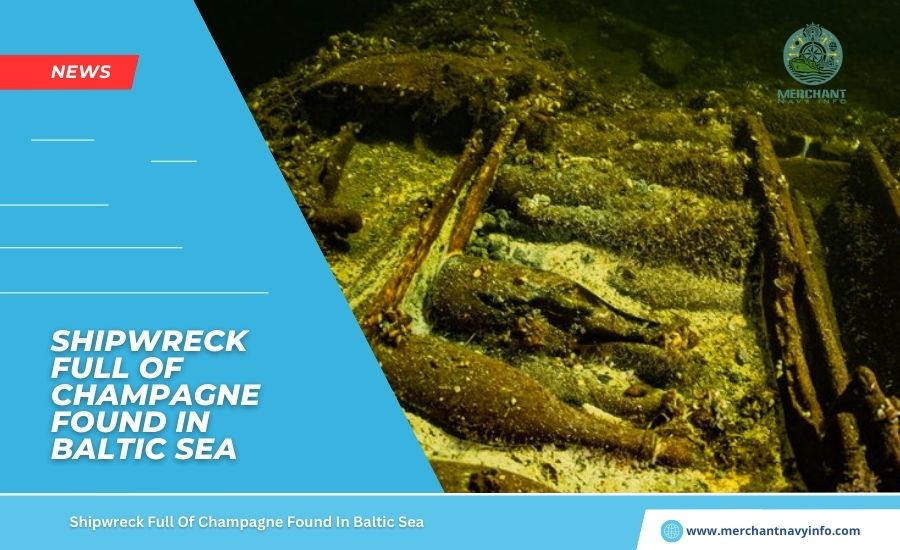
Divers have discovered the wreck of a 19th-century sailing ship filled with champagne and mineral water in the waters south of Sweden. Polish divers from the Baltic Tech team found the wreck and its champagne cargo while searching for new sites to explore in the Baltic Sea.
After the team noticed what appeared to be small debris in the sonar system, two divers went to investigate. It turned out to be a 19th-century shipwreck that was still in relatively good condition, with most of its cargo intact.
“The entire wreck was filled with cases of champagne, mineral water and porcelain,” said Thomas Stachura, a diver and leader of the Baltic Tech team.
“We didn’t expect it to be a big deal and were even hesitant about whether to dive,” he added. “Divers Marek Cakaj and Pawel Truszynski showed great determination by being the first to dive and inspect the wreck.”
Among the finds were around 100 bottles of champagne and mineral water. However, the group said, it was difficult to determine the exact number at this stage.
Sunken champagne found by the Baltic Tech team.
It’s not the first time champagne has been found in a shipwreck in the Baltic Sea. But it’s unusual to see such a large number of bottles.
“It’s a first for me to find a shipwreck with such a large cargo,” said Stachura, who has 40 years of experience as a diver and specialises in photographing underwater wrecks.
The clay mineral water bottles are called “Selters,” a high-end German brand that still exists today. The Baltictech group said it believes the ship capsized sometime in the second half of the 19th century.
They said that during this period, mineral water was “almost treated as medicine”. Suggesting the bottles may have been intended for a royal table.
While the ship was found about 20 nautical miles (37 kilometers) south of the Swedish island of Åland, it is not clear where it was destined.
The Russian elite of this period were known for their love of champagne, especially very sweet champagne. Russian Tsar Nicholas I reportedly lost a ship in the area around 1852, Stachula told the BBC.
The divers said they wanted to explore the wreck in more detail and have contacted the Institute of Maritime Archaeology at the University of Southern Sweden, including its director, Professor Johan Ronneby.
They added that they are looking for sponsors to help with the ongoing research and that more information will be shared at the Baltictech 2024 conference, which will be held in Poland in November.









